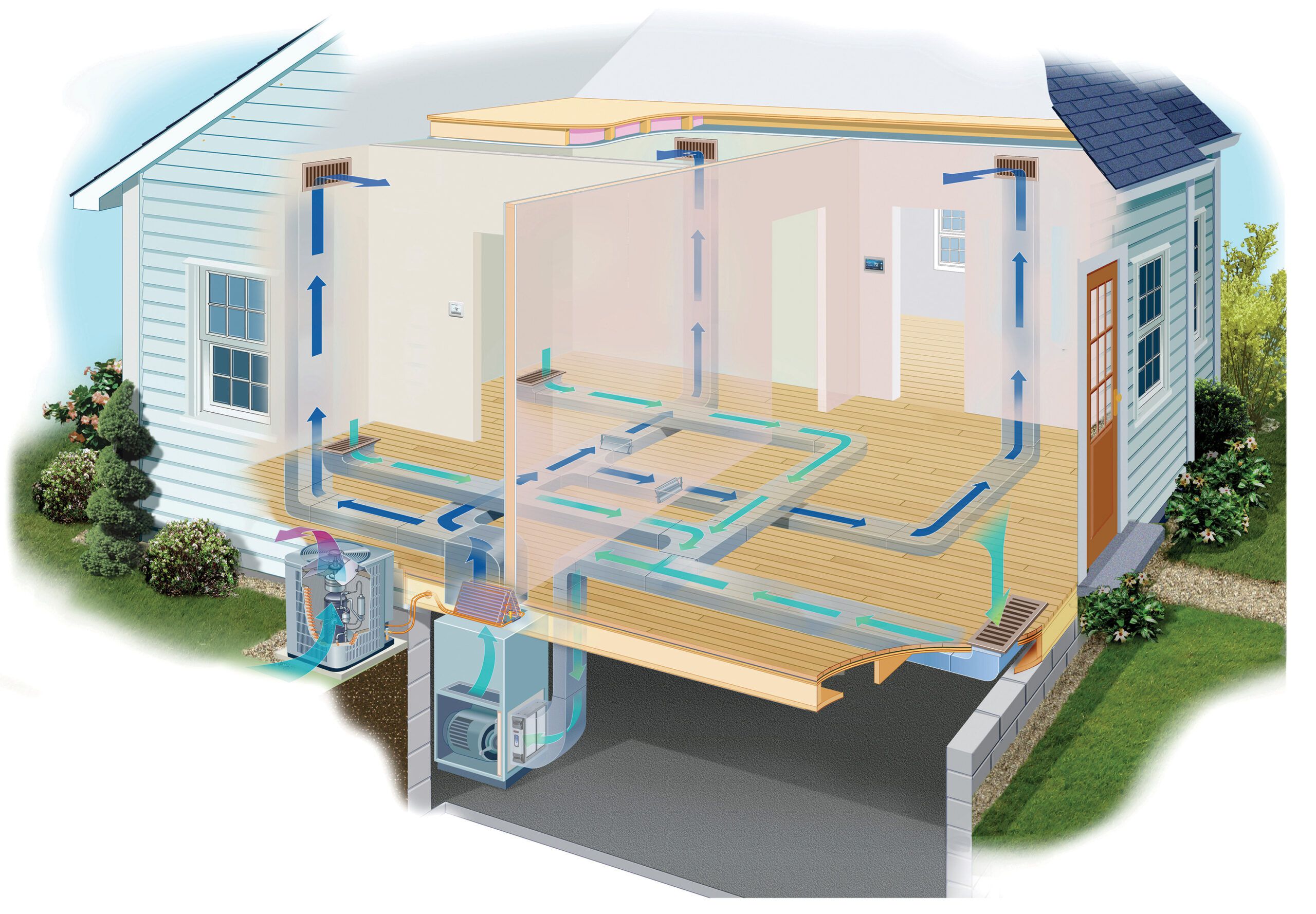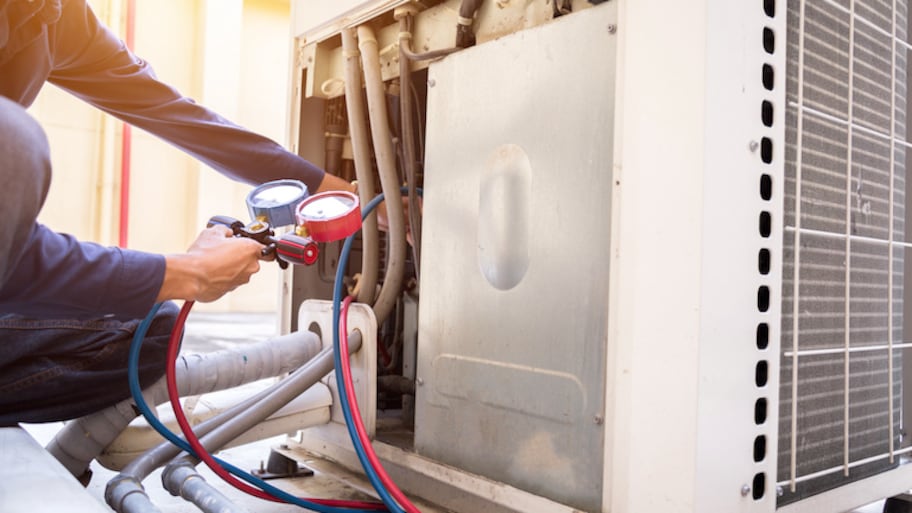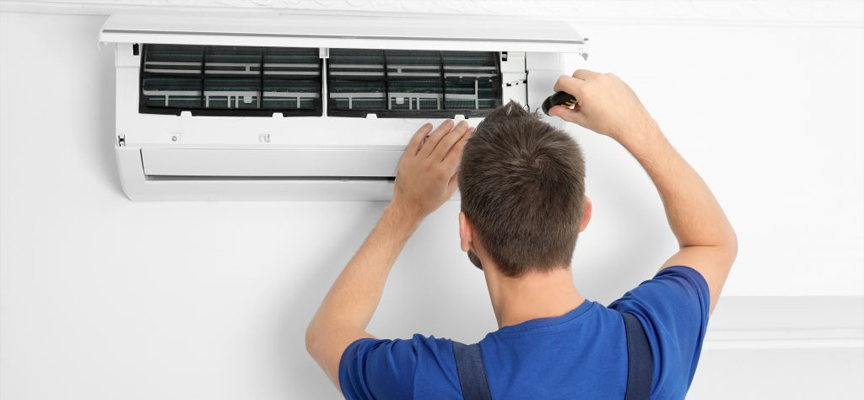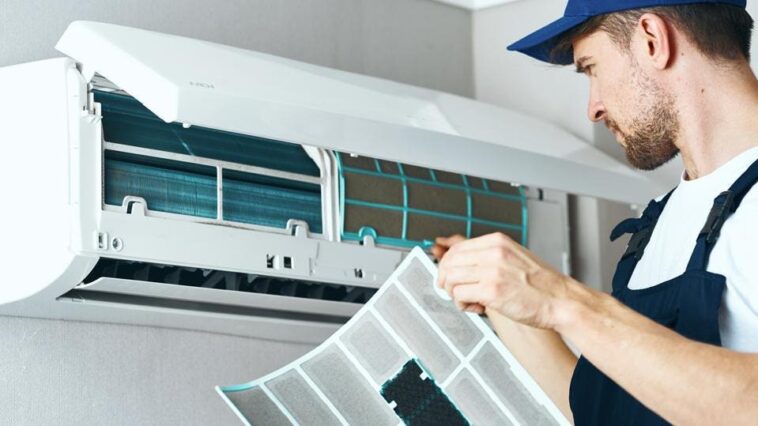Understanding the science behind the way your AC functions can help you understand what it may need for repairs. You may set the thermostat and think nothing more of your HVAC system, however, knowing what it does to keep you cool can help you catch small issues before they become major problems.
Once you know more about what this machine actually does to make your home comfortable, you’ll have a keen eye out for anything unusual that could hinder its functionality.
The Science of Cooling a Home with an HVAC System

While you’re sure to notice cool air blowing from your vents when your air conditioner is running, it doesn’t just blow this all around your home. It also removes the heat, and the science behind this is the natural state after heat energy is drawn out of an enclosed area.
If you have a central AC, it uses two coils that circulate refrigerant that absorbs heat. There is an evaporator coil in the interior portion of the unit that absorbs heat as the air passes through it. The cooled air then flows through your ducts to make your home a comfortable place.
Meanwhile, the refrigerant flows through a conduit to your outdoor portion of the unit. This is where the compressor is busy working hard to convert your refrigerant into a hot vapor. The hot and pressurized vapors of refrigerant enter the condenser coil, dropping the pressure to convert it into a liquid while the coil releases the heat drawn from indoors back outside.
This cycle continues as needed to keep your home at the temperature you set. However, there are certain things that can change the efficiency of how your AC runs, which may make the need for repairs arise.
Weather Changes
The changes in the weather, particularly in summer, affects how long your AC equipment runs. The longer it runs, the more potential it has for wear and tear, which can mean you may run into the need for AC repair.
Temperature Setting Preference

Another factor in your AC efficiency is the temperature that you prefer to set your AC to in your home. You may find that you are most comfortable when you keep your thermostat at 75 while someone else may feel that 69 is pushing it on the brink of comfort.
Home Heat Load
Every home has an internal heat load, or the amount of heat that is generated on the interior. While it can come in through doors and windows, it is also something that is created by your own activities.
Turning on the TV, the number of people inside your home, your cooking appliances, computers, and anything you plug in adds to this heat load. This makes the internal temperature rise indoors and causes your AC to start up and run to cool things down.
Home Insulation
When your home is tightly sealed and well-insulated, it will stay colder longer. The cold air will be trapped in your home. As the insulation wears out over the years, it may not be as adept at keeping this cooled air inside.
Equipment Maintenance

How well you take care of your HVAC system will affect its need for repairs. If you don’t miss a beat when it comes to changing your air filters or scheduling service, your system will be better primed to combat the intense heat of Houston.
Design of Your HVAC System
The way your HVAC system is designed also plays a key role on how efficient your AC will be over the years. The placement of your ducts and vents along with the insulation and size can either make or break that efficient heat transfer and conditioning of air indoors.
Equipment Efficiency
The efficiency of your AC equipment will depend on the system. Inverted systems can modulate capacity and workload while variable speed components can switch gears, depending on how they are installed. These components can be set up in a particular way to keep it from running at a constant speed. As they change speeds, they have the potential to use more or less energy while operating.
The Importance of AC Maintenance and Repair for Efficient Air Conditioners

Now that you have a better understanding of how your air conditioning unit functions, it’s time to review efficient AC repair principles in Houston. If you want to prevent costly repairs, it is essential that you schedule regular maintenance to keep your system humming along as it should.
Many homeowners tend to ignore or neglect minor issues, shrugging off the repairs until the entire system breaks down. This is never a good idea as these minor issues can turn into larger ones. It also means more downtime with your unit, causing your home’s interior to become too hot and humid for your comfort.
Additionally, maintaining your air conditioning unit means you improve its energy efficiency. When a professional HVAC technician comes to your home, they check all the working parts and clean things up to ensure it is running at the optimum level. Doing this means you also consume less energy by fine-tuning your machine.
Perhaps one of the biggest reasons for efficient AC repair is that this integral appliance in your home doesn’t just cool your home and rid it of unpleasant humidity. It also cleans the air you breathe. You should always change your air filters at the proper intervals for your particular HVAC system to help keep dirt, dust, and allergens from circulating in the air.
Failing to take care of this simple task can also mean these items create a layer of buildup on the inner workings of your air conditioner, which can impact on how well it functions.
The longer you let these things circulate in the air, the more unhealthy your home will be. The science behind how your air conditioning system cools your home and clears the air is fascinating, though with the knowledge comes the power to know how important it is to handle AC maintenance and repairs without delay.



